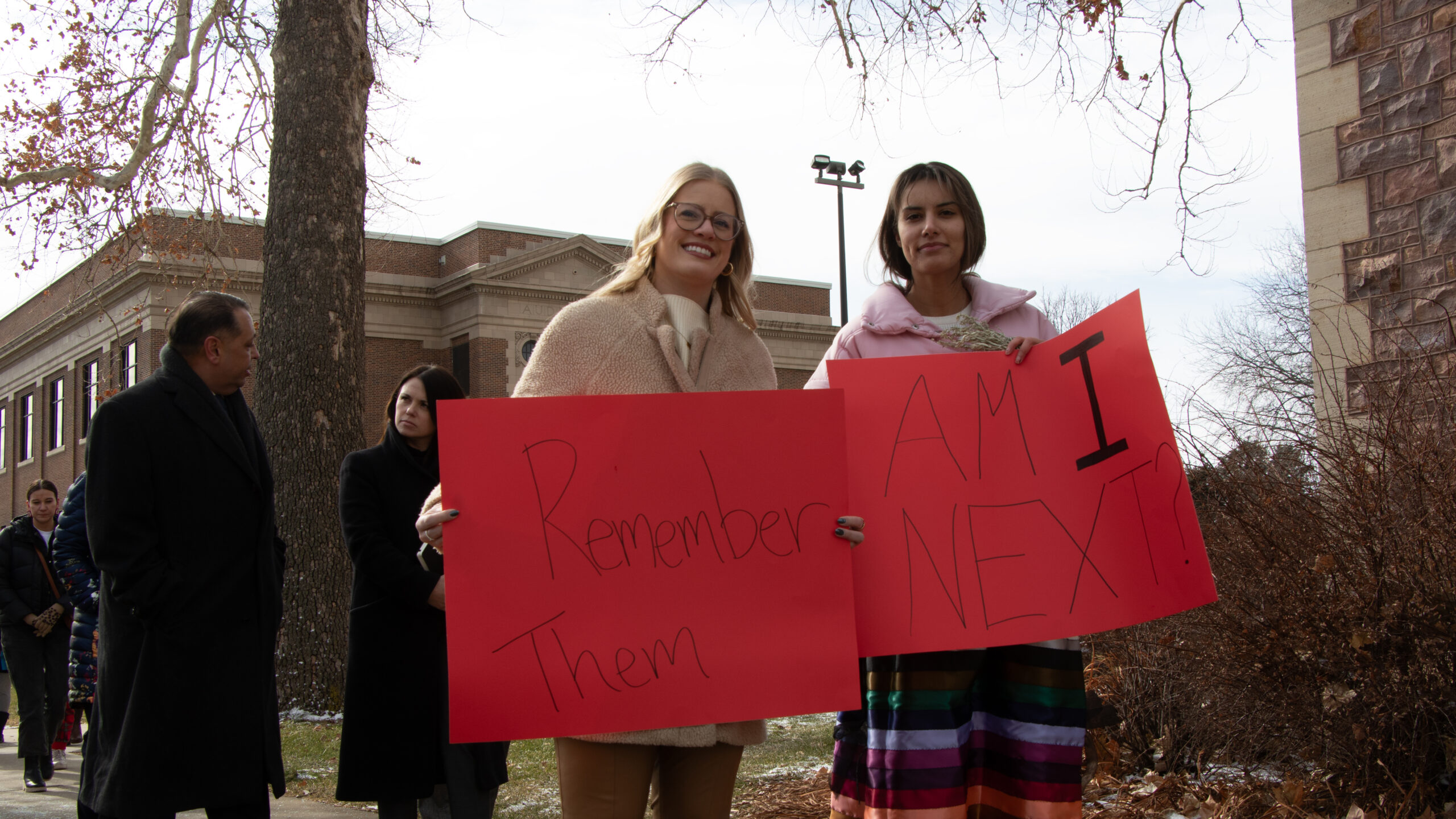
“Never Forget the Names,” Students March for Missing Indigenous People
On Thursday, February 16, USD students, faculty and staff joined the Native American Law Student Association (NALSA) and the Native American Cultural Center for a Missing and Murdered Indigenous Person march.
There are 132 missing people listed on South Dakota’s Missing Persons Clearinghouse. 71 of the persons listed are Native American or Alaskan Native.
Attendees were joined in prayer at the beginning of the event, before beginning the march from Old Main to the Knudson School of Law.
Marilyn Allen, the president of the NALSA and member of the Flandreau Santee Sioux Tribe, said this year’s demonstration was personal.
“Every year, the NACC hosts [a march]. This year, there were a few incidents that hit pretty close to home for me, and after speaking with NALSA’s board we felt this year’s march was something that we should bring attention to and show our peers in the law school.”
Following the march, attendees were invited to join representatives of the U.S. Attorney’s Office for a panel discussing the issue
Among those in attendance was Gregg Peterman, First Assistant, U.S. Attorney’s Office. He emphasized the importance of community support while investigating these crimes.
“We need to do a better job of responding to the needs of survivors. They need help working with legal work, education, and social work,” Peterman said.
Joining Peterman in the panel was Alison Ramsdell and Troy Morley from the U.S. Attorney’s Office.
For students like Allen, the opportunity to meet with these legal professionals was impactful.
“It really showed just how important this cause is to them. They were more than happy to share their words and answer our questions regardless of the audience size, and that was pretty great,” Allen said.
Although the protest may have happened on Thursday, Allen reminded attendees this advocacy must happen each day.
“Never forget the names of the men, women, children that have been taken, murdered. They wanted to be safe, but that was taken from them, and if we continue to ignore it, it will continue to happen and it could be someone in your family or yourself,” Allen said.


